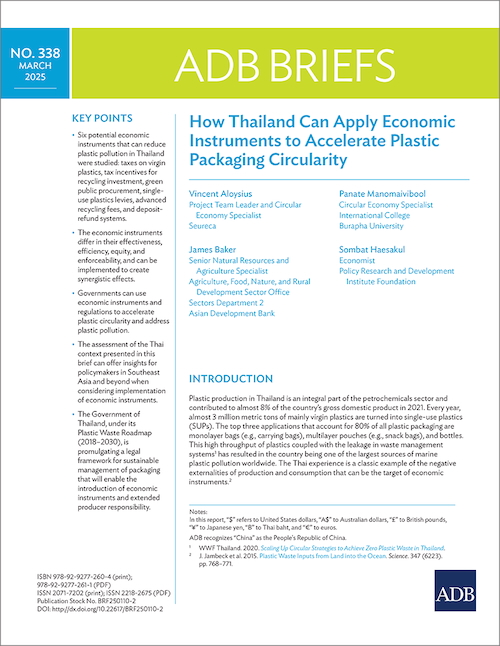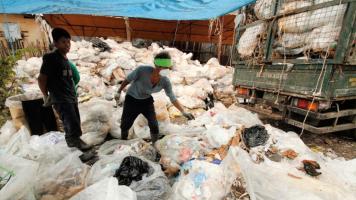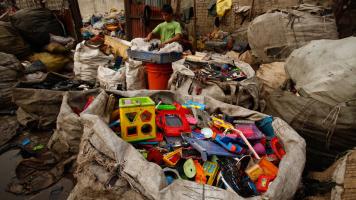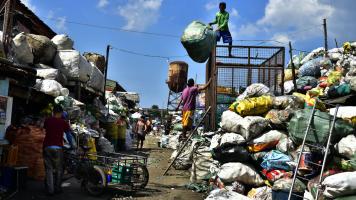How Thailand Can Apply Economic Instruments to Accelerate Plastic Packaging Circularity
 Download (207.22 KB)
Download (207.22 KB)
Publication Type:
Publisher:
Asian Development Bank (ADB)
Publication:
March 2025
This brief examines economic instruments including taxes and deposit–refund schemes to assess how they can effectively and equitably promote a shift toward a circular economy.
Thailand is working on accelerating plastic circularity as part of efforts to address plastic pollution. Every year, almost 3 million metric tons of mainly virgin plastics are turned into single-use plastics. This high throughput of plastics coupled with the leakage in waste management systems has resulted in the country being one of the largest sources of marine plastic pollution worldwide.
Analyzing ways Thailand can tackle plastic pollution, this brief examines economic instruments including taxes and deposit–refund schemes to assess how they can effectively and equitably promote a shift toward a circular economy. Noting Thailand’s struggle to cut marine plastic pollution, the brief considers the benefits and risk of six instruments including levies on virgin and single-use plastics, tax incentives for recycling investment, and advanced recycling fees. It shows how a blended approach that includes short-term virgin plastic taxes, medium-term policy reforms, and knowledge sharing and capacity building could help Thailand balance its economic and environmental gains.


